What You Need To Know About Sardines: 8 Surprising Health Benefits of Sardines and How to Make Them Taste Great
8 Health Benefits of Sardines and How to Make Them Taste Great
Overview
Sardines are highly nutritious small fish that have been enjoyed as an appetizer for centuries. Their high protein content and impressive micronutrient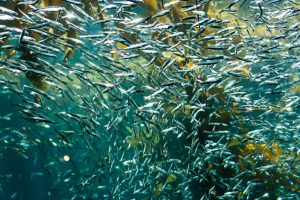
Sardines are highly perishable foods and are difficult to find fresh, but they are easily and commonly available in canned form. Research suggests that increasing your intake of this fatty fish can improve your physical and mental well-being in many ways.
Read on to explore the impressive health benefits of sardines and recipes to make them taste great.
8 reasons why you should eat more sardines.
1. Sardines are an excellent source of omega-3 fatty acids
Sardines are valued for their high omega-3 content—a type of polyunsaturated fatty acid known for its anti-inflammatory and healing properties. It is an essential fat that the body cannot make on its own and must obtain from dietary sources.
Omega-3 fatty acids are an integral part of cell membranes, helping provide structure and facilitating the interaction between cells. Every cell in the body needs a regular supply of this nutrient to function optimally. They are also a major structural component of your brain and retina.
Consuming foods high in omega-3 can bring wide-ranging health benefits. Studies have shown that eating fatty fish twice a week can improve brain function, support learning, boost skin and hair quality, reduce chronic pain, protect the eyes from macular degeneration, and prevent conditions like anxiety and depression. Being a powerful anti-inflammatory agent, omega-3 helps boost immune function and reduces the risk of chronic conditions like Alzheimer’s disease, rheumatoid arthritis, cancer, asthma, and auto-immune conditions.
2. Your heart loves fatty fish
Omega-3 found in sardines are well-researched for their protective and health-promoting effects on the heart. Studies have shown that seafood rich in PUFAs can increase protective cholesterol, reduce total cholesterol and triglyceride levels, remove plaque build-up from arteries, lower blood pressure, stabilize heart rate, and reduce inflammation of blood vessels.
According to one study, consuming just one or two servings of sardines every week provides enough omega-3 acids to reduce your risk of heart disease and stroke by one-third.
3. Sardines provide high-quality protein
One 100-g serving of sardines contains approx. 24 grams of protein, which alone translates to about one-third of your daily protein requirements! Moreover, the protein found in sardines is complete and of the highest quality, which means it supplies all nine essential amino acids your body needs in the correct proportions.
While the Western diet is naturally rich in protein, most of us are not getting quality proteins. Protein quality is determined by three factors: the composition of amino acids, digestibility, and bioavailability. Fatty fish like sardines, salmon, tuna, and mackerel are examples of high-quality protein, as they have excellent digestibility and can easily be utilized by the body.
Sardines are also low in saturated fats, cholesterol, and calories. Studies have shown that consuming lean proteins can help maintain a healthy body mass index, build muscle mass, increase metabolic rate, lower blood cholesterol, boost energy levels, and improve blood sugar control. Lean protein consumption is also linked with a lower risk of heart disease, stroke, osteoporosis, type-2 diabetes, and Alzheimer’s disease.
4. Sardines are rich in micronutrients
Sardines are an incredibly rich source of vitamin B12 (cobalamin), with a 100-g serving providing about four times the daily recommended value. Cobalamin is a water-soluble vitamin that plays an essential role in protein and fat metabolism, the formation of red blood cells and DNA, nerve function, and brain cell development. Its deficiency can cause problems like fatigue, numbness in hands and feet, mental fogginess, frequent headaches, and poor balance and memory. Estimates suggest that about 40% of older adults in the United States may be deficient in this vitamin.
Sardines are also high in selenium, which is an important trace mineral involved in reproduction and thyroid hormone metabolism. Research shows that adequate consumption of selenium helps protect healthy cells from oxidative damage, maintains proper immune function, and reduces the risk of certain cancers.
In addition, sardines provide good amounts of calcium, phosphorus, niacin, potassium, vitamin D, folate, riboflavin, magnesium, iron, zinc, manganese, thiamine, and copper.
5. Sardines help in diabetes prevention and management
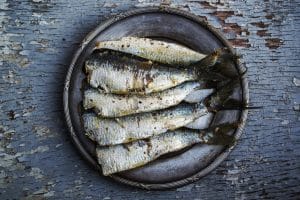
Research shows that enriching your diabetes-friendly diet with sardines can increase the levels of adiponectin hormones. Adiponectin plays an important role in glucose regulation, lipid metabolism, and fatty acid breakdown. It increases glucose uptake by muscles, lowers blood sugar concentration, protects pancreatic beta cells (which secrete and synthesize insulin) from oxidative damage, and improves insulin sensitivity.
In one human trial, eating sardines 2-3 times a week for eight weeks significantly reduced c-reactive proteins, which are important markers of chronic inflammation and diabetes progression.
In another 2021 placebo-controlled trial, elderly patients with prediabetes were randomly divided into two groups: the control group and the sardines group. Both groups received the same diabetes-prevention diet for 12 months, whereas those in the trial group were given 100 grams of sardines (canned in olive oil) twice a week. Researchers found that fish consumption significantly improved insulin sensitivity and lowered the risk of developing type-2 diabetes in the high-risk group. It also helped increase HDL cholesterol and reduced blood pressure and triglyceride levels.
6. Sardines help you build stronger bones and muscles
Sardines are naturally rich in bone-boosting nutrients that help build a robust skeletal structure. This sea fish has small, edible bones that can give your meals a huge boost of calcium. Just one can of wild-caught sardines provides over 30% of your daily calcium intake, which is more than an eight-ounce glass of whole milk! Besides, it is an excellent source of vitamin D, which enhances intestinal absorption of calcium and magnesium.
Vitamin D plays a crucial role in mental wellness, gut health, and immune function. Very few food sources naturally contain this rare nutrient, fatty fish like sardines being an exception.
In addition to calcium and vitamin D—the two key nutrients for bone health—sardines also contain a wide range of important minerals like magnesium and phosphorus that help increase bone mineral density and prevent age-related bone loss. Research suggests that a higher intake of fatty fish can reduce the risk of osteoporosis and bone fracture and promote healing after injury.
According to a 2020 study, foods high in omega-3 fatty acids can help preserve bones in elderly females and reduce the risk of calcium accumulation in healthy tissues.
7. Sardines support a healthy pregnancy
Eating sardines 2-3 times a week is not only safe but also encouraged during pregnancy. Apart from augmenting your diet with plenty of high-quality lean protein (which is vital for making new tissues and organs), this wholesome food provides key nutrients needed for the successful maintenance of pregnancy.
Omega-3 fatty acids are the critical building blocks of the baby’s brain and retina and promote healthy fetal growth and development. Research shows that adequate consumption of fatty fish during pregnancy can prevent preterm labor and postpartum depression in mothers and also reduce the risk of your child developing allergic conditions later in life.
Vitamin D and calcium are required for building healthy bones and teeth. A diet high in these two nutrients helps prevent birth complications like preeclampsia, low birth weight, fragile bones, and poor growth after birth.
Vitamin B12 is essential for developing your baby’s nervous system and spinal cord. It is also needed for making the DNA and red blood cells. Low levels of this vitamin may increase the risk of neural tube defects, growth retardation, spinal deformation, and miscarriage. Sardines are among the richest sources of this important prenatal nutrient. (Vitamin B12 is naturally present only in animal foods. If you are vegetarian or vegan, consider speaking to your doctor about taking a supplement.)
8. Sardines are great for gut health
Sardines are loaded with several gut-healthy nutrients that can support a flourishing gut microbiome, fight gut inflammation, and improve mucosal barrier function. Omega-3 acids found in fatty fish work as a prebiotic to increase the population of friendly gut bacteria that produce short-chain fatty acids.
Research shows that a sardines-enriched diet can promote intestinal healing and improve conditions like ulcerative colitis and irritable bowel syndrome.
How to prepare sardines
Sardines can be prepared in a variety of ways. You can apply a paste of spices (like turmeric, black pepper, cumin, cardamom, cinnamon, bay leaves, star anise, coriander, garlic, and ginger), lemon juice, and olive oil to fresh sardines, and then bake or grill them. You can also make a luscious sardine curry and serve it as a main dish.
Canned sardines do not need exhaustive preparation. They can be eaten directly after rinsing and warming up on the stovetop. A delicious way to enjoy this seafood is to make a quick salad with lots of fruits and vegetables. Here are two recipes that you can try (The first recipe is my personal favorite).
Recipe: Cucumber-avocado salad with sardines
Ingredients (choose all organic ingredients)
- 1 medium-sized cucumber
- 1 medium-sized avocado
- 1 small-sized shallot or onion
- 10 cherry tomatoes (diced in half)
- ¼ cup olives
- 1 tablespoon extra-virgin olive oil
- 1 can wild-caught sardines (preferably in water or olive oil)
- Ground black pepper
- Salt
- 1 habanero pepper chopped or 1 teaspoon of cayenne pepper (optional)
- Raw pecans (optional)
Preparation
Clean the cucumber (peeled), shallots, and tomatoes. Dice and combine the vegetables with olives and extra virgin olive oil. Add salt and black pepper to taste. Mix all ingredients in a bowl. Open and drain the sardine. Warm up the sardines, mix them with other ingredients, and enjoy!
Recipe: Vegetable-fruit salad with sardines
Ingredients (choose all organic ingredients)
- 1 Granny Smith apple (shaved)
- 1 medium-sized avocado
- ½ cup baby arugula
- ¼ cup olives
- 1 carrot (shaved)
- 1 shallot (chopped)
- 1 can of wild-caught sardines (preferably in water or olive oil)
- 1 tablespoon extra-virgin olive oil
- 1 teaspoon apple cider vinegar
- Salt
- Ground black pepper
- 1 medium-sized tomato (optional)
Preparation
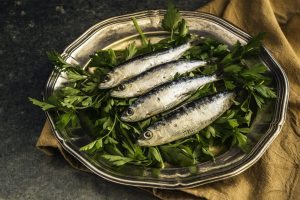
Potential health risks of eating sardines
Sardines primarily feed on plankton and, therefore, do not contain high levels of mercury like larger fish. According to the US FDA, they are among the safest seafood choices and have a lower risk of contamination.
Sardines naturally contain a compound that increases uric acid in the body. If you have kidney problems, consider speaking to your doctor before including them in your diet.
Final thoughts
Sardines are among the healthiest foods on the planet, providing everything your body needs for growth and maintenance. They are packed with high-quality proteins, vitamins, and minerals and are an excellent source of heart-healthy omega-3 fatty acids.
Studies have shown that consuming sardines twice a week can bring numerous health benefits, ranging from healthy skin and hair to reduced risk of chronic disease. Nutrition scientists have suggested that pregnant women should increase their consumption of sardines for healthy fetal development.
When buying canned sardines, make sure to buy wild-caught varieties and look for the ones packed in water or olive oil. Also, inspect the package for expiration date, dents, and unnecessary additives.
For natural and healing remedies, products, and supplements that can help you live your most optimal healthy life, visit our store here!
To Your Health!
References
https://www.ncbi.nlm.nih.gov/pmc/articles/PMC6861329/
https://www.clinicalnutritionjournal.com/article/S0261-5614(21)00153-9/fulltext
https://www.tandfonline.com/doi/full/10.1080/87559129.2020.1867565
https://www.ncbi.nlm.nih.gov/pmc/articles/PMC4836051/
https://www.ncbi.nlm.nih.gov/pmc/articles/PMC5804294/
https://pubmed.ncbi.nlm.nih.gov/32548903/
https://www.nature.com/articles/s41598-017-10382-2
https://www.ncbi.nlm.nih.gov/pmc/articles/PMC5751248/
https://www.ncbi.nlm.nih.gov/pmc/articles/PMC4153275/
https://www.tandfonline.com/doi/full/10.1080/19490976.2020.1863133

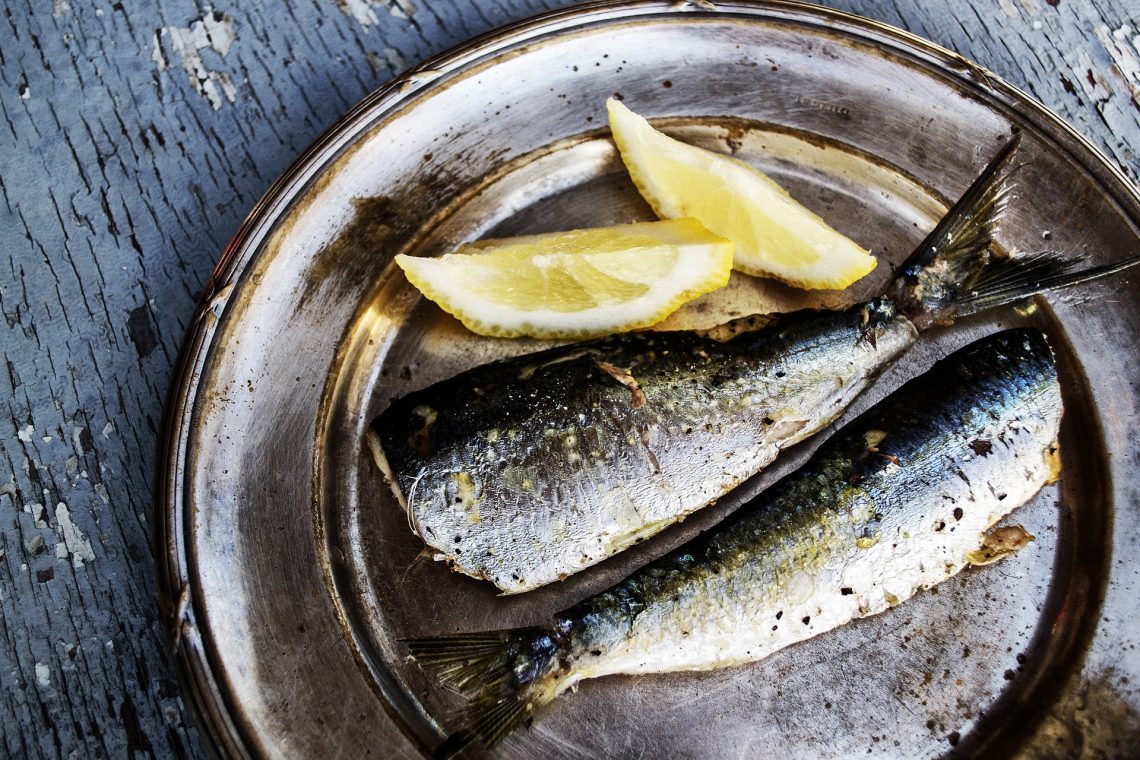

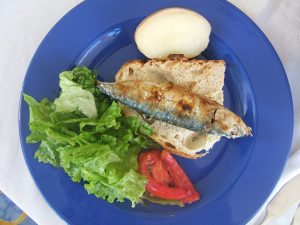
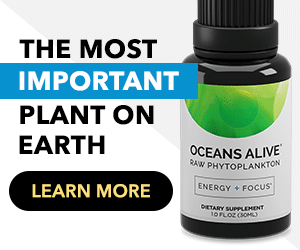







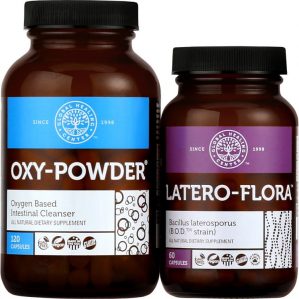
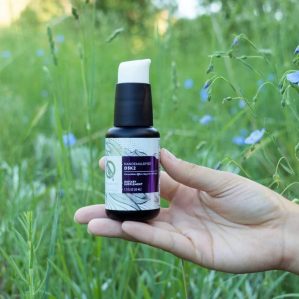
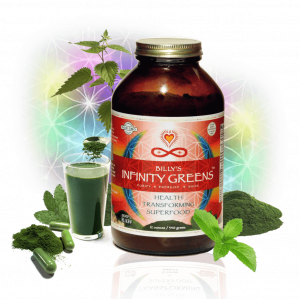
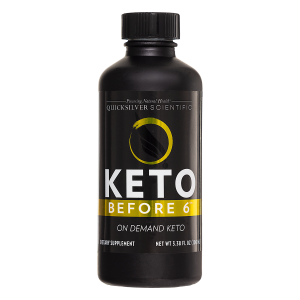












0 Comment